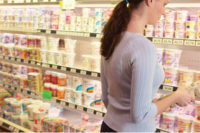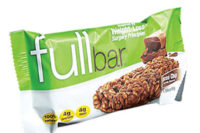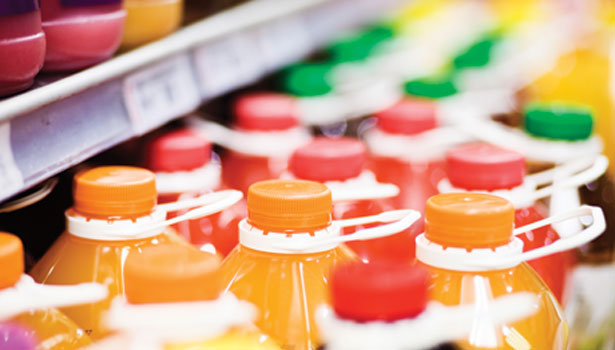Innovative Beverages Enter New Grounds

Nowadays, shoppers have a wide spectrum of beverages from which to choose, as companies vie for consumers' dollars.





May 9/Prepared Foods’ May 2011 --As one walks down the beverage aisle of a local grocery or grabs a drink from the local convenience store, one thing is immediately clear: the number of options consumers have to cleanse their palates has become overwhelming. Not too long ago, the beverage section consisted almost entirely of soda pop and water. Nowadays, shoppers have a wide spectrum of alternatives from which to choose, as companies vie for consumers’ dollars. Companies that manufacture and sell products (in several beverage market subsets, in particular, such as energy drinks, enhanced waters and RTD teas) are creating a variety of innovative drinks, experimenting with novel ingredients (as well as returning to basic ingredients) and taking marketing to new levels--all in the effort to get a share of the beverage marketplace.
Energy Drinks
No group of products has made a bigger splash over the last couple of years than energy drinks and supplements. While energy drinks, in some form, have been around for decades, energy beverages in their current form have hijacked the marketplace over the last several years, and certainly no group has gone to greater lengths to market and promote its products. Whether it is 5-Hour Energy proclaiming it can “get you past that 2:30 feeling” or a victorious “X-Gamer” athlete sporting a Go Fast or Monster logo, commercials and advertisements for energy drinks are ubiquitous. To see how far energy drinks have infiltrated not just the beverage aisle, but American culture, look no further than the professional soccer team named the “Red Bulls!”
While energy drinks have undoubtedly managed to capture the attention of a good portion of the consuming public, it is still unclear what the long-term holds for this class of products. As more and more companies try to enter the market, they are forced to come up with new strategies to make their products unique. Some have increased the levels of “energy” ingredients, like caffeine and taurine. Others have added novel or exotic ingredients that have not traditionally been used in beverages. Still others have attempted to package the energy with alcohol, a move to which regulatory agencies responded in concert last November. Serious safety concerns over some of these “innovations,” as well as the blurring of lines between beverages and liquid dietary supplements, have caused the FDA and other regulatory agencies to take a very close look at this class of products; going forward, tighter regulation is expected.
Enhanced Water
While bottled water products experienced a drop in popularity several years ago, signs point to a resurgence, especially those in the “enhanced water” category. As consumers continue to search for healthy, natural and “simpler” products, water products are likely to be viewed as solutions. This category has launched some of the most innovative products in the beverage industry. One such company is Activate. Activate products come with a proprietary cap containing nutrients in powder form that are released into the water upon opening. Most enhanced water products come with nutrients and vitamins already added, such as Vitaminwater and Propel. Still others, such as Penta, focus on the purification process in order to trumpet “ultra-purified water.” Finally, some companies are enhancing the pH level in the water to tout highly alkalized water for optimum health, such as new entrant RockHumanity and its NEO Water.
Ready-to-drink (RTD) Teas
RTD teas, as a class of products, are not exactly new. The category has been traditionally headlined by a few well-known names, like AriZona, Lipton and Snapple. However, some of the more innovative companies and products in the beverage industry have turned up in the RTD tea category and have been making headway in recent years. In order to compete against the dominant category leaders, RTD tea companies have been forced to think of some unique and creative ways to set their products apart. Some companies, like Honest Tea, have found great success going the organic route. Other companies, like New Age Beverages, the makers of Xing Tea, have focused on green tea and are utilizing natural sweeteners, such as honey and pure cane sugar, instead of high-fructose corn syrup. Consumers have an ever-widening array of flavors to choose from, as Superfruits, like pomegranate, acai and mango, have made their way into RTD teas. While price has traditionally driven the market share in this category, consumers looking for healthy and natural options now have a plethora of products from which to choose.
Regulating the Beverage Industry
Of course, as companies continue to explore new alternatives and innovations in the beverage arena, they must ensure they stay in line with the laws and regulations governing beverages and supplements. As the number of companies and products entering the beverage market steadily increases, the FDA and other federal and state regulatory agencies will continue to direct more of their attention to the industry. While regulatory agencies have historically focused on product labeling and marketing of claims promoting beverages and supplements, recent actions suggest regulatory agencies will shift the focus of their attention to the ingredients used in drink products. As the analyses for determining which ingredients are legally permissible are different for beverages and supplements, it is more critical than ever for companies to understand those differences--in order to make the best decision as to how to sell their products. Once that decision is made, companies must be consistent in the marketing of their products, so the identity of their products cannot be questioned, if the FDA decides to investigate. Thus, a thirst for innovation and a healthy knowledge of the law will allow inventive companies to achieve success in the beverage industry. pf
For more information on beverages, type “beverage formulations” into the search field at PreparedFoods.com, or enter “Drink and Eat Good Health” in the field at NutraSolutions.com.
Looking for a reprint of this article?
From high-res PDFs to custom plaques, order your copy today!









